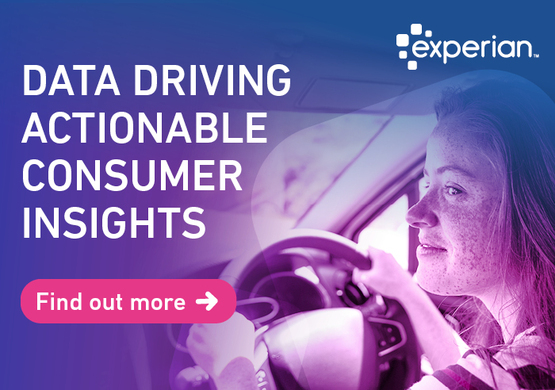Advertisement feature from Experian

Resilience is just about the most valuable commodity for anyone in the automotive industry at the moment, as we collectively seek a way through the Covid-19 pandemic.
Motor traders have increased their online and contact-free services to minimise the effect of forecourts needing to close. Elsewhere, dealers have increased focus on affordability while also helping the essential workers who need to travel to get the vehicles they need.
While business is still significantly disrupted, it's vitally important to plan to create the best chance of thriving when more normal times return. Data can be a powerful ally in understanding changes in attitudes and the population so you can best target your resources – both in marketing to new customers and ensuring you're best placed to serve them when they visit your website or forecourt.
At Experian, we’ve updated our Mosaic consumer segmentation to include even more data, which, using the latest analytical methods can give you deeper, more granular insight. We’ve combined our understanding of changing consumer behaviour, with research from YouGov to help motor traders navigate the coming year.
The WFH Effect
Affluent families, particularly those in their 50s and 60s who have high discretionary income levels, are well equipped to weather the pandemic from a financial perspective. Yet their requirements for a vehicle may have changed. Our survey found that 47% of respondents said they are more likely to work from home considering the pandemic.
Yet, affluent families remain the most likely to buy a new car and are also the most likely to buy a premium used car. Our data shows that people in this group are particularly passionate about electric vehicles.
The lesson here is that even where the pandemic has changed commuters' needs, they can still be persuaded to spend the disposable income they saved during the pandemic on a new or bigger ticket used vehicle.
Mum and Dad's taxi service
Another group that motor traders should depend on when business picks up again is families with mid-to-high household income. Often both of the parents in these families work, though one may be part-time. They are usually short of time and use the internet as a practical way to get jobs done, so ensuring that your website is fully functional and allows people to complete more of the car buying process online is a real advantage.
Families like this often have children at various stages of schooling. With that comes the ongoing requirement for Mum and Dad's taxi service – particularly when people may still be reluctant to use public transport. It's no surprise this group is expected to be among the most likely to buy a new or premium used car.
Evolving your strategy
The pandemic has fundamentally changed the way people live and how they use their vehicles. But motor traders will also need to consider how they reach prospects, who are now less likely to drive past billboards or spot adverts in bus shelters.
It makes sense to focus on digital channels to reach your audience and focus on people who are most likely to have money in their pocket and a continued motivation to buy a car.
There can be no denying that this is a turbulent time for our industry, and resources are more stretched than ever before. Motor traders will stand the best chance of weathering the current storm by using insights from data to understand which prospects are most likely to become customers.
For a copy of the whitepaper detailing the latest trends in the automotive industry, or to learn more about Mosaic contact businessuk@experian.com or visit our website.
















Login to comment
Comments
No comments have been made yet.